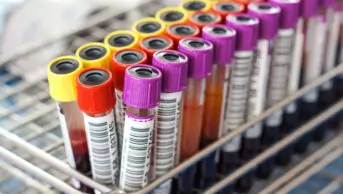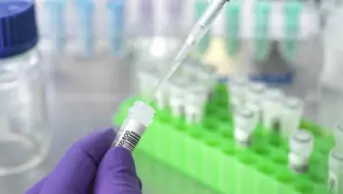
Shutterstock.com
No pharmacists have yet applied for a funded place on Swansea University’s postgraduate course in genomic medicine in the three years they have been available, The Pharmaceutical Journal has learned.
Health Education and Improvement Wales (HEIW) has allocated funding to cover the tuition fees for 39 places on the course for healthcare professionals working in the NHS since 2019, and 23 of these places have been taken up.
The tuition fees for paying students on the part-time MSc amount to £5,100 per year as of September 2022. The course is offered to healthcare professionals on a part-time basis with the classroom-based elements of the course delivered in intensive teaching blocks.
Despite this, no applications have yet been received from pharmacists for a funded place on the course, with experts saying that a lack of awareness and the time commitment involved may be a factor.
Most UK pharmacy professionals say that they do not feel prepared for how genomics may change their day-to-day practice, according to a survey of 615 pharmacy professionals by The Pharmaceutical Journal published in April. The survey found only 10% answered that they were prepared “a great deal” or “a lot” for this change.
Claire Morgan, associate professor of biomedical sciences and programme director for the postgraduate genomics course at Swansea University, said that she was looking at ways of drumming up more pharmacist interest in the course to help them learn more about genomics.
She said: “Since its establishment in April 2018, we have not had a single pharmacist apply for the course.
“I would very much like to see pharmacists apply for the course and it has been a personal endeavour of mine to raise awareness of the course and the role pharmacists will play in the genomics era,” she added.
Morgan said that a small survey of around 100 pharmacy professionals that they carried out in early 2022 indicated a general lack of awareness of training opportunities.
Sophie Harding, pharmacogenomics lead at the Royal Pharmaceutical Society, explained that a lack of study leave for pharmacists may be behind the issue.
“Undertaking education within genomics will be key to how pharmacists are upskilled in order to be leaders in pharmacogenomics implementation. [But] there has been limited uptake by pharmacists in postgraduate courses, such as the MSc in genomic medicine [at Swansea University], due to lack of study leave allocation across many organisations.
“This is due to staff shortages, especially during and after the COVID-19 pandemic, and increased work commitments.”
She added: “The lack of awareness of the impact of genomics on the role of the pharmacist has also played a role, along with other factors, such as an individual’s personal life commitments, which will affect the ability to take on further self-directed postgraduate study.”
The spokesperson for HEIW added that the pharmacogenomics module, which forms part of the genomic medicine MSc, can be taken as a standalone module.
“Currently, there are no other training opportunities in pharmacogenomics available to pharmacy staff in Wales,” they said. “However, HEIW is working with partners to identify the workforce development needs within Wales and to develop other training opportunities in pharmacogenomics that will be available to all healthcare professionals, including those with a pharmacy background.”
Read more: Only one in ten pharmacy professionals feels confident on pharmacogenomics


